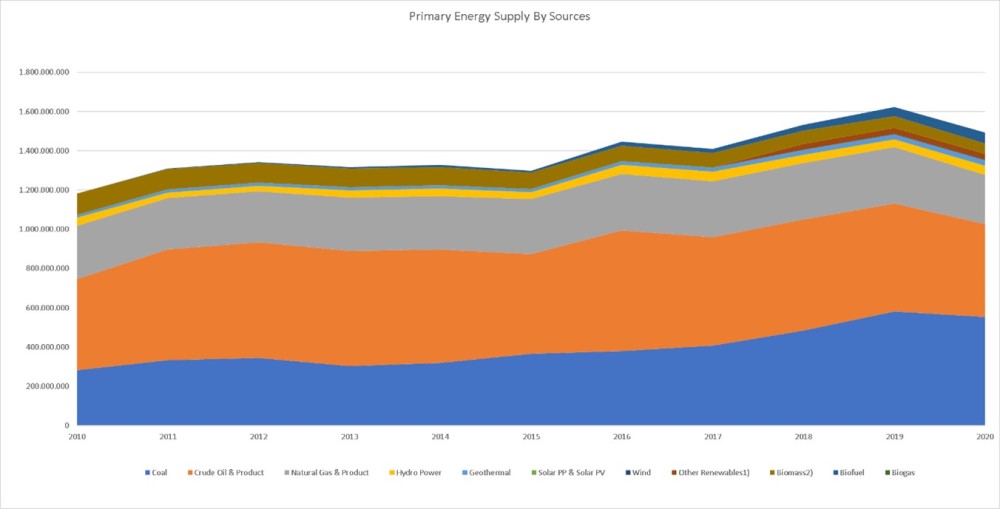FEATURED PAPER
By Ivan Pradibta
Jakarta, Indonesia
ABSTRACT
As a national Oil and gas Company, PERTAMINA guarantees optimal Fuel Storage capacity throughout Indonesia. This paper responds to the pressing demand for streamlining planning and construction activities related to New Storage Tanks so that PERTAMINA can fulfill its target. The solution presented is a standardized Work and Cost Breakdown Structure (WBS/CBS) that was crafted for effortless implementation and could ease the scheduling and cost estimation processes. Furthermore, the author thoughtfully designed this framework to integrate it into the BIM system, boosting its efficiency and effectiveness. Utilizing Multi-Attribute Decision Making (MADM), the author chose the Omni Class WBS standard for constructing the WBS/CBS. The study concludes with a comprehensive proposal for a functional 3D WBS architecture. The emphasis lies on precise definitions, comprehensive stakeholder coverage, and seamless integration into the Building Information Modeling (BIM) system. Moreover, this paper suggests potential research areas for the future, including coding structure development, improved cost estimation process using new WBS/CBS, and technology integration (WBS, CBS, BIM) for more efficient PERTAMINA project control.
Keywords: Multidimensional WBS, New Tank Storage, CBS, Building Information Modeling (BIM)
INTRODUCTION
“Indonesia’s energy consumption trends show the increase of GDP correlated highly with an increment of energy consumption”[1]. Based on contemporary trends, we can see “that Indonesia as a country relied heavily on oil as the main source of energy supplier for all its economic activities.” [2]

Figure 1 – Indonesia Primary Energy Supply by Sources[3]
“Most of the energy produced from the Gasoil Product goes to 1st Transportation and 2nd Industrial (Manufacturing/Production) activities and 3rd residential”. [4]This means that the nature of the oil product distribution is quite decentralized (unlike the industrial complex, which is mostly centralized), and this only means that the government must make sure that the oil product can be delivered throughout all parts of Indonesia so that the citizen could obtain it quite easily with proper price.
As one of Indonesia’s largest Oil and Gas companies, Pertamina has an important task – distributing fuel across the country. With such a crucial responsibility, Pertamina Subholding C&T (now known as Pertamina Patra Niaga) prioritizes establishing an adequate storage infrastructure in all corners of Indonesia to meet its obligations effectively. This commitment is made clear through the company’s annual town hall meetings, emphasizing expanding storage capacity…
More…
To read entire paper, click here
How to cite this paper: Pradibta, I. (2024). Developing a Standardized, Multidimensional WBS/CBS Coding Structure for Storage Tanks; PM World Journal, Vol. XIII, Issue III, March. Available online at https://pmworldlibrary.net/wp-content/uploads/2024/03/pmwj139-Mar2024-Pradibta-Standardized-Multidimensional-WBS-CBS-for-Storage-Tanks.pdf
About the Author

Ivan Pradibta
Jakarta, Indonesia
![]()
Ivan Pradibta is a Cost and Budget Controller for Project Management with nine years of experience in procurement, reliability, construction, and engineering in oil and energy industries. Currently, he work as an Ast of Cost and Budget Control for Project Management at the Indonesian national energy company. He possesses a Bachelor of Science in Telecommunication Engineering from Bandung Institute of Technology (ITB) and Master of Management form Diponegoro University (Undip). He is enrolled in a distance learning mentoring course taught by Dr. Paul D. Giammalvo, CDT, CCE, MScPM, MRICS, and GPM-m Senior Technical Advisor, PT Mitratata Citragraha, to achieve Certified Cost Professional certification from AACE International.
Ivan Pradibta resides in Jakarta, Indonesia, and his email address is ivan.pradibta@gmail.com.
[1]Azam, M., Khan, A. Q., Zaman, K., & Ahmad, M. (2015). Factors determining energy consumption: Evidence from Indonesia, Malaysia and Thailand. Renewable and Sustainable Energy Reviews, 42, 1123-1131. https://doi.org/10.1016/j.rser.2014.10.061
[2] Narayan, M. (2023, February 2). Indonesia 2023 gasoline demand, imports likely to exceed 2022 records. Reuters. https://www.reuters.com/business/energy/indonesia-2023-gasoline-demand-imports-likely-exceed-2022-records-2023-02-02/
[3] Government of Indonesia, MEMR. 2020. Handbook of Energy & Economic Statistics of Indonesia 2019. Jakarta.
[4] International Energy Agency. (2020). Key energy statistics Indonesia, 2020. https://www.iea.org/countries/indonesia









